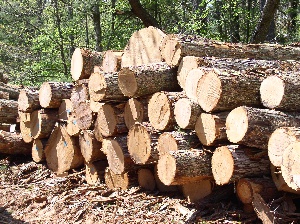About 250-300 workers of a timber company at Berekum in the Brong Ahafo Region, AsuoBomosadu Timbers & Sawmill (ABTS) Ltd., are set to be laid-off by management as a means to cut down cost pending imminent closure of the company in the next four or five years, the Managing Director, Ernest Apraku has hinted.
The Management of ABTS, which is in a distressed state, is sourcing funds including an option of selling some machines to see off many of its personnel, numbering about 550, in the face of challenges bedevilling it.
“ABTS, established in1981, was once a major exporter of timber, plywood and T&G with a workforce of over 1,000. The company used to produce 2,400 cubic metres of plywood per month but has reduced drastically, now hovering around 800-900 cubic metres -- largely because raw material unavailability and financial constraint,” Mr. Apraku revealed in an interview with B&FT.
He lamented that though the move is very unpleasant, particularly for the affected workers who have to lose their jobs in the midst of the current difficult economic situation in the country, they have to bear it as the company is at a crossroad where they all have to swallow is bitter pills.
“Our sole source of raw material natural forest is rapidly dwindling with no alternative; the timber industry is no more attractive to warrant loans from banks, and many of our machines malfunctioning as most of them are over 30 years of age. “Utility tariffs on the other hand are taking a massive toll on our operations; averagely we pay not less than GH¢60,000 only on electricity, which does not correspond with our income generation, while the spillover effects of the global economic crunch has also deepened our woes.”
According to the MD, though the company has teak plantation of about 500 hectares but it is awfully insufficient to feed them as their main source from the natural forest is virtually exhausted after massive exploitation between the last 30-40 years without planting back.
This, he largely attributed to the failure of statutory institutions to engineer serious reforestation programmes in the last three decades after leasing forest concessions to timber companies for huge sums of money.
He consequently advocated massive reforestation programmes to reclaim lost forest cover as a key intervention to revamp and sustain the timber industry.
“Ghana must emulate reforestation examples of countries like Congo Brazzaville, Cameroon and DR. Congo where they have been successful in implementing sustainable projects. The days of desperate and politically motivated programmes should be a thing of the past to help revive the timber industry,” he said.
Business News of Thursday, 1 August 2013
Source: B&FT

















